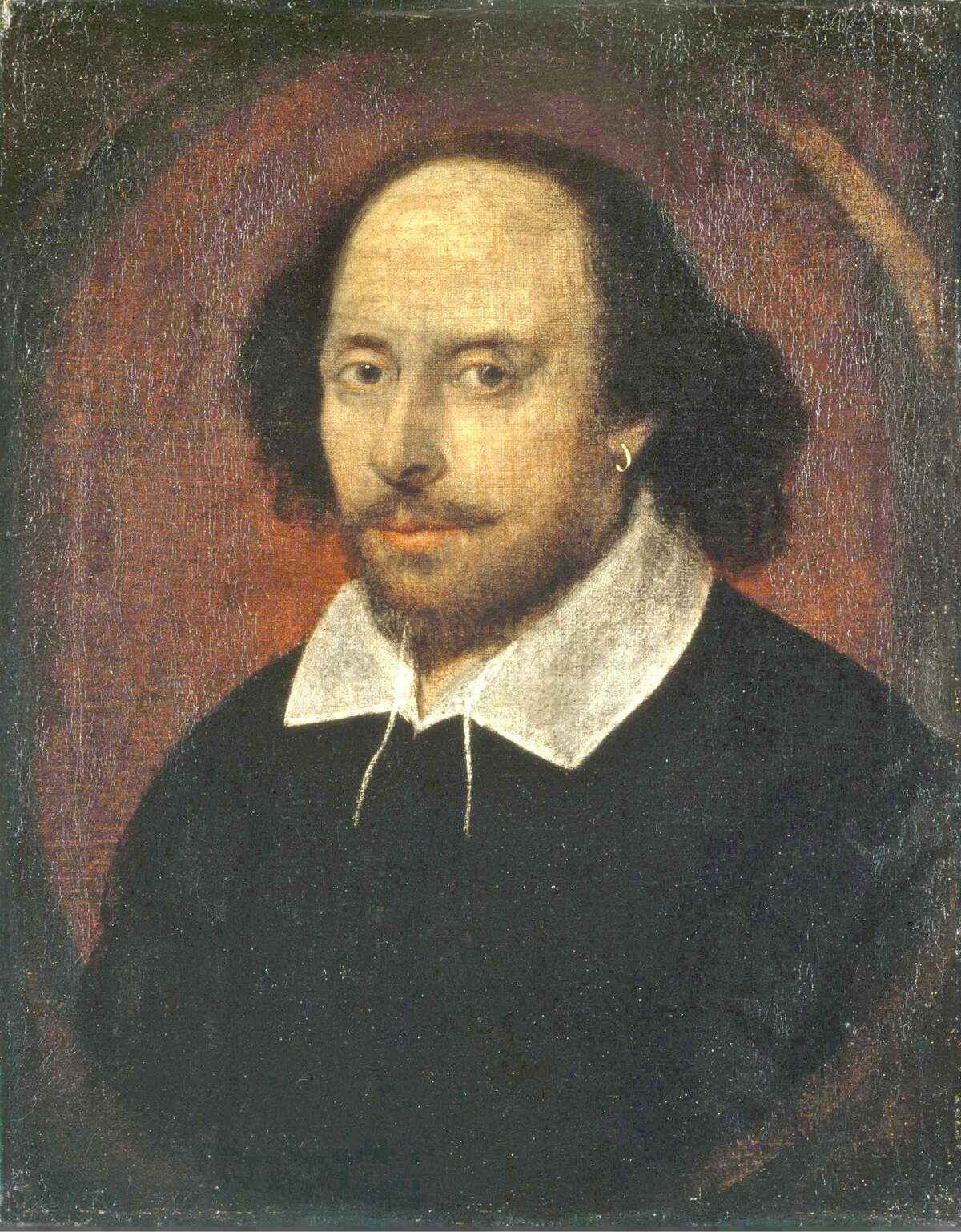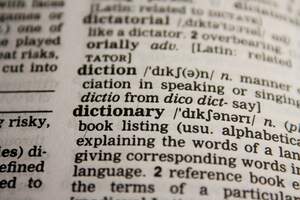

Talk Like Shakespeare Day
Observed
annually on April 23rd (since 2009)
Dates
Founded by
Chicago Shakespeare Theater in 2009
Hashtags
Sources
https://web.archive.org/web/20240413211443/http://www.talklikeshakespeare.org/
https://www.biography.com/authors-writers/william-shakespeare
https://www.anrdoezrs.net/links/100298379/type/dlg/https://www.newspapers.com/image/233133850/
https://www.anrdoezrs.net/links/100298379/type/dlg/https://www.newspapers.com/image/233172239
https://www.anrdoezrs.net/links/100298379/type/dlg/https://www.newspapers.com/image/234359569/
https://www.anrdoezrs.net/links/100298379/type/dlg/https://www.newspapers.com/image/241462292/
https://www.anrdoezrs.net/links/100298379/type/dlg/https://www.newspapers.com/image/308976746/
https://www.anrdoezrs.net/links/100298379/type/dlg/https://www.newspapers.com/image/671406242/
https://www.anrdoezrs.net/links/100298379/type/dlg/https://www.newspapers.com/image/742456349/
https://www.anrdoezrs.net/links/100298379/type/dlg/https://www.newspapers.com/image/84530610/
https://www.anrdoezrs.net/links/100298379/type/dlg/https://www.newspapers.com/image/896869638/
https://www.npr.org/2009/04/23/103414533/how-now-wench-talking-like-shakespeare
https://www.shakespeare.org.uk/explore-shakespeare/shakespedia/william-shakespeare/william-shakespeare-biography/
Cousins, 'tis Talketh Liketh Shakespeare Day, a day to talketh liketh Shakespeare! According to the Chicago Shakespeare Theater, the founder of Talk Like Shakespeare Day, "The twenty-third of April bring your rhymes—It's William Shakespeare's birthday. Party time! Try talking like the Bard once wrote his plays…" Following the Chicago Shakespeare Theater's founding of the day in 2009, it was supported by a number of elected officials. Chicago Mayor Richard Daley proclaimed Talk Like Shakespeare Day in Chicago in 2009, on what would have been Shakespeare's 445th birthday. He proclaimed it again the next year, the same year the Chicago Shakespeare Theater sent Shakespeare look-alikes throughout the city asking people to speak like Shakespeare. The holiday was acknowledged statewide in 2011 when Illinois Governor Pat Quinn proclaimed the day. Mayor Rahm Emanuel proclaimed the day in Chicago in 2012 in 2015, and the Chicago Shakespeare Theater continued involvement at this time.
Nebraska Governor Dave Heineman proclaimed the day in 2012 and 2013. A Shakespeare flash mob event was held at the University of Nebraska at Omaha in 2012. Nebraska Shakespeare, an organization no longer in operation, organized events during these years and those immediately following, with activities such as a sonnet writing contest, and schools and businesses also participated in the day.
While there haven't been official proclamations for Talk Like Shakespeare Day in recent years, it has continued to be celebrated by bardolaters and has lived on in newspapers and on the internet. The Chicago Shakespeare Theater made suggestions of ways to talk like Shakespeare, making it easy for anyone to celebrate, including saying "thou" and "thee" instead of "you," and "ye" instead of "y'all"; using the letter "t" in place of "it," to make phrases like "'tis," "t'will," and "I'll do't"; adding "eth" to the end of verbs, like "he runneth," "he trippeth," and "he falleth"; using rhymed couplets; referring to friends as cousins; and by adding weight to opinions by introducing them with the likes of "methinks," "wherefore," "mayhaps," and "in sooth."
William Shakespeare was baptized on April 26, 1564, at Holy Trinity Church in Stratford-upon-Avon, leading scholars to believe that he was born on April 23. A playwright, poet, and actor, he may be most known for his 38 plays. He also wrote poems, consisting of 154 sonnets, two narrative poems, and a few other poems. The era that Shakespeare wrote during is referred to as the English Renaissance or Early Modern Period and spanned the Elizabethan and Jacobean eras.
William Shakespeare was born in the English town of Stratford-upon-Avon, about 100 miles northwest of London. His parents, John and Mary, had eight children, and William became the eldest after two of their daughters died as infants. William likely learned reading, writing, and the classics, including Latin, at King's New School in Stratford, until he was 14 or 15, but he didn't go on to university. At the age of 18, William moved out of the family home on Henley Street, marrying Anne Hathaway, with whom he had three children. The years between 1585 and 1592 are known as his "Lost Years."
By 1592, Shakespeare was working as a playwright and actor in London. His first printed works were the long poems Venus and Adonis (1593) and The Rape of Lucrece (1594). He was one of the founders of The Lord Chamberlain's Men in 1594, which became The King's Men after the rise of King James I to the throne in 1603. Shakespeare became an integral dramatist for the troupe, producing about two plays a year for the next two decades. He wrote tragedies, histories, and comedies, and combinations of them. The Taming of the Shrew was likely the first play Shakespeare wrote, but his first published plays were Titus Andronicus and Henry VI Part 2, in 1594. Shakespeare wrote most of his most well-known plays while with the troupe, including tragedies like Romeo and Juliet, Macbeth, and King Lear, and comedies and romances like The Winter's Tale and The Tempest.
By the end of 1597, Shakespeare likely had written 16 of his plays and had gained a great deal of wealth. That year he bought New Place, the largest house in Stratford-upon-Avon. In 1599, Shakespeare and other actors built the Globe Theatre, an open-air theatre on the banks of the Thames River. After it burned down during a production of Henry VIII in 1613, it was rebuilt and opened the next year. Shakespeare is believed to have started writing his sonnets in the 1590s. They were published in a collection in 1609, broken into two groups, the Fair Youth sonnets, composed of the first 126, and the Dark Lady sonnets, making up sonnets 127 through 154.
William Shakespeare died from a short illness at the age of 52, on April 23, 1616—on the same date most scholars think was also his birthday, and on which Talk Like Shakespeare Day is observed. Following his death, fellow actors from The King's Men, John Heminges and Henry Condell, preserved 36 of his plays by publishing them in what is known as the First Folio, formally titled Mr. William Shakespeare's Comedies, Histories, & Tragedies, in 1623.
Shakespeare reached a new height of respect in the early nineteenth century, during the Romantic period and going into the Victorian period, to that of a dramatic genius. Adaptations of his plays spread around the world, and today remain indispensable touchstones on the stage and in film. Shakespeare is now considered one of the most important literary figures in the English language and the foremost dramatist of all time. Because of all this, and being that he invented or introduced 1,700 words to the English language, and came up with common phrases like "love is blind" and "wild goose chase," it's only right that there is a Talk Like Shakespeare Day, which is celebrated today on the anniversary of the Bard's birth (and death)!
How to Observe Talk Like Shakespeare Day
A few suggestions from the day's founder, the Chicago Shakespeare Theater, on how to talk like Shakespeare include:
- Say "thou" and "thee" instead of "you," and instead of "y'all," say "ye."
- Instead of saying "it," just use the letter "t," and make phrases like "'tis," "t'will," and "I'll do't."
- Add "eth" to the end of verbs, making phrases like "he runneth," "he trippeth," and "he falleth."
- Use rhymed couplets.
- When saying an opinion, add some weight by starting it with words like "methinks," "wherefore," "mayhaps," and "in sooth."
- Refer to your friends as your cousins.
Other ideas of ways to talk like Shakespeare include:
- Use some of the many words introduced by Shakespeare.
- Use a Shakespearean or English to Shakespearean translator to assist you in coming up with phrases or whole paragraphs to say in the style of Shakespeare.
Other ways to enjoy the day could include:
- Attend a production of one of Shakespeare's plays, perhaps at the Chicago Shakespeare Theater, the Royal Shakespeare Theatre, Shakespeare's Globe—which is based on the Globe Theatre and close to its original location—or at the Oregon Shakespeare Festival.
- Read one of Shakespeare's plays or sonnets or other poems. Find them in The Complete Works of William Shakespeare or Mr. William Shakespeare’s Comedies, Histories, & Tragedies.
- Read a biography on Shakespeare such as Shakespeare: The Biography by Peter Ackroyd or Will in the World: How Shakespeare Became Shakespeare Stephen Greenblatt.
- Visit Shakespeare's Birthplace, New Place, or Shakespeare's funerary monument inside Holy Trinity Church.
- Learn about the other holiday focused on the English language that takes place on Shakespeare's birthday.





















